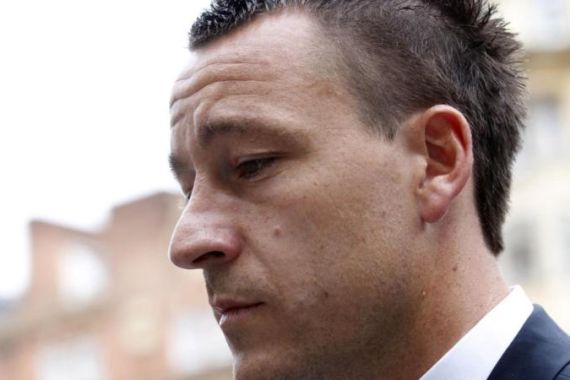Is John Terry a racist?
Footballer John Terry’s racist remarks are troublesome in a sport trying to “kick” racism out.

John Terry is a world-class soccer player. He is captain of the English Premier League powerhouse Chelsea. He has captained the national squad for England. And in a heated exchange on the field in October 2011, he called QPR’s Anton Ferdinand, brother of Rio, his former England centre-back partner, a “f***ing black c**t”.
Since then, Terry has been stripped of the England captaincy, has faced criminal charges (and was acquitted in court), and has been banned for four matches by the Football Association for his words.
Is John Terry a racist? For Peter Herbert, chair of Britain’s Society of Black Lawyers, the answer is clearly yes. When the Football Association declared that Terry had made a racist statement but was not a racist, Herbert said, “That is an unbelievable application of logic and one, as a discrimination lawyer, you find quite incredible.”
Labelling someone a racist has serious implications. For many people in Europe and North America – thankfully – being a racist places you beyond the pale of polite society. Athletes may lose lucrative sponsorships, as well as a shot at future careers as spokespeople or commentators. In their daily lives, they may be shunned by friends and teammates and derided by strangers.
| British government plans to tackle racism in football |
Scholars have grappled for a long time with how to know if someone is a racist. Most of them have come to the conclusion that being a racist is not an either-or proposition. Many scholars now think of “racist” as a category much like “stupid”. Some people are definitely stupid, others are definitely not, and some people are in between on the sliding scale of humanity. Whether you are judged to be racist, or stupid, may depend on who is judging you, and that judgment can change over time.
Intensity and consistency are two key elements that can help us identify racists. How strongly does someone hold a racist opinion? Is that person open to modifying it, or is it fiercely held in the face of all evidence to the contrary? And does a person consistently adhere to a wide range of racist opinions, or is their racist statement a one-off event?
Viewed through this lens, there is a wide gulf between someone who utters a single racist insult and someone who is a dyed-in-the-wool racist.
Where does John Terry fall on this spectrum? To know, we have to look at his record. To its credit, the Football Association did just that. In its disciplinary ruling issued in late September, it concluded that, “It is not the FA’s case that Mr Terry is a racist. There is a large body of testimonial evidence, including statements from black footballers, to say that he is not.”
Of course, the FA and the public cannot know for sure if John Terry is a racist – only he and his close friends and family might be able to know his deeply held beliefs. But based on what the FA has seen and what his other footballers have said, it seems much more likely that Terry’s outburst was an isolated incident.
That doesn’t absolve Terry from charges of racism. Terry could have immediately admitted his insult, apologised for it, and reaffirmed his commitment to fighting racism in word and deed. But instead he claimed to have spoken those words as a question of sorts – did you think I called you a f***ing black c**t? The FA rightly found this defence ridiculous. But more importantly, many of his fellow footballers have also found it a poor substitute for an admission and an apology.
A fortnight ago, more than 30 players refused to wear the “Kick It Out” anti-racist campaign’s t-shirts as a form of protest against the ineffectiveness of English football’s anti-racist initiatives. Manchester United coach Sir Alex Ferguson asserted that all players should back the campaign, only to have his veteran black defender Rio Ferdinand – brother to Anton Ferdinand, the target of Terry’s verbal dagger – ignore his coach by refusing to don the shirt. Even more consequentially, rumours are circulating that some players may break away to form a stand-alone Black Players Association. According to Professional Footballers Association chairman Clarke Carlisle such a move “would instantly define ‘us and them’ and that’s something we really need to work against”.
But John Terry’s outburst already defined the “us” and the “them”. He has since apologised for his racist words, but when faced with a court trial last February, Terry defiantly proclaimed, “I will fight tooth and nail to prove my innocence.” Until Terry openly admits that his racist statement was spoken in anger, apologises unreservedly, and reaches out to black players to find out what he can do to repair the damage, there will be no way for him or the FA to kick racism out of football.
Erik Bleich is professor of Political Science and Director of International Politics and Economics at Middlebury College and is the author of The Freedom to Be Racist? How the United States and Europe Struggle to Preserve Freedom and Combat Racism, published by Oxford University Press.
